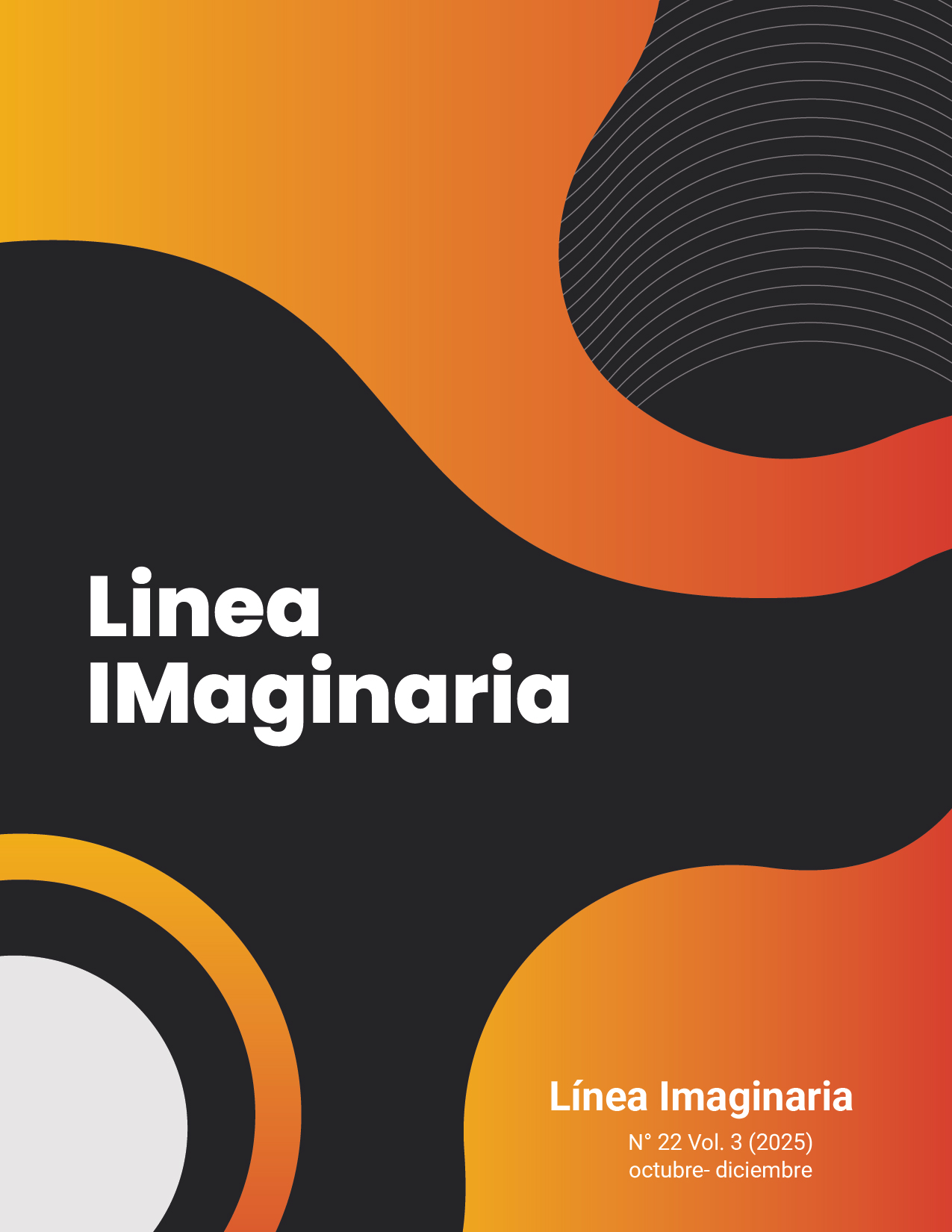THE ROLE OF THE TEACHER AS A LEADER AND SOCIAL PROMOTER IN EDUCATIONAL INSTITUTIONS IN THE COLOMBIAN-VENEZUELAN BORDER AREA
DOI:
https://doi.org/10.56219/lneaimaginaria.v3i22.4636Keywords:
role of the teacher, leader, social promoter and border zoneAbstract
Education today has faced changes and transformations that contribute in a good way to the development of educational institutions; reason that through this vision we seek how to address social problems and of course understand the dynamics that surround the border areas, where daily smuggling, prostitution, white slave trade or otherwise illegal acts that threaten humanity are observed; in this sense the present general objective is assumed: theoretical reconstruction from the role of the teacher as a leader and social promoter in educational institutions in the Colombian-Venezuelan border area; the intention is to show a documentary analysis presented through an academic essay; where each of the aspects that converge in the role of the teacher working in border areas are taken into consideration; It is observed there that the population, organizations and institutions face situations that alter the coexistence in the different scenarios that make up this imaginary border line, where today it is observed that thousands of Venezuelans have arrived in search of new paths and better living conditions and that is why from the educational institutions teachers must assume the role of leader and social promoter; since, from this position it is concluded that teachers are those who have in their hands the opportunity to contribute to the progress and development of communities.
Downloads
References
ACNUR (2020). Situación en Venezuela. https://eacnur.org/es/blog/la-situacion-actual-de-los-migrantes-y-refugiados-de-venezuela
Aguirre, S., & Muñoz, L. (2012). La corresponsabilidad del maestro de hoy frente a los paradigmas emergentes, para la reconfiguración del tejido social. https://repositorio.ucm.edu.co/handle/10839/393
Ávalos, B. (2011). El liderazgo docente en comunidades de práctica. [Teacher leadership in communities of practice]. EDUCAR, 47(2), 237-252. https://n9.cl/ofqi5u
Barbosa, A., Briceño, C., Gómez, Y., Lizarazo, M., & Maguin, T. (2018). El ejercicio del liderazgo docente en Colombia: voces de los maestros (Master's thesis, Universidad de La Sabana). https://intellectum.unisabana.edu.co/handle/10818/33433
Duarte, R. F. M. y Bohorquez, J. (2024). Liderazgo Transformacional: Clave del Éxito en Educación. Revista Digital de Investigación y Postgrado, 5(9), 107-121. https://doi.org/10.59654/ftw5tn94
García, G. (2021). Panorama educativo de migrantes venezolanos en edad escolar en la frontera colombo-venezolana. http://historico.upel.edu.ve:81/revistas/index.php/linea_imaginaria/article/viewFile/9793/6195
Ortiz, J. (2022). La educación intercultural, un referente curricular desde las prácticas pedagógicas en el ámbito escolar transfronterizo. [Tesis de Doctorado, Universidad Pedagógica Experimental Libertador- Instituto Pedagógico Rural “Gervasio Rubio”]. http://espacio.digital.upel.edu.ve/index.php/TD/article/view/191
Palacios, M., & Peralta, L. (2023). Migración y posacuerdo: desafíos del Estado colombiano. Migraciones internacionales, 14. https://doi.org/10.33679/rmi.v1i1.2580
Pinto, A., Baracaldo, P., & Aliaga, F. (2019). La integración de los venezolanos en Colombia en los ámbitos de la salud y la educación. Espacio Abierto, vol. 28, núm. 1. https://www.redalyc.org/journal/122/12262976013/html/
UNESCO. (2006). Directrices sobre la educación intercultural. https://unesdoc.unesco.org/ark:/48223/pf0000147878_spa/PDF/147878spa.pdf.multi
Villamizar, D. (2021). Dinámica migratoria de estudiantes venezolanos en la zona de frontera colombo-venezolana http://historico.upel.edu.ve:81/revistas/index.php/linea_imaginaria/article/viewFile/9795/6196
Wong, B. (2021). Aproximaciones a los Pasos de Frontera y Centros de Atención en Frontera como elementos de promoción del desarrollo e integración fronterizos. http://repositorio.adp.edu.pe/handle/ADP/173
Downloads
Published
How to Cite
Issue
Section
License

This work is licensed under a Creative Commons Attribution-NonCommercial-ShareAlike 4.0 International License.
La revista Línea Imaginaria conserva los derechos patrimoniales (copyright) de las obras publicadas, que favorece y permite la reutilización de los mismos bajo la licencia Creative Commons Atribución-NoComercial-CompartirIgual 4.0 , por lo cual se pueden copiar, usar, difundir, transmitir y exponer públicamente, siempre que se cite la autoría y fuente original de su publicación (revista, editorial, URL y DOI de la obra), no se usen para fines comerciales u onerosos y se mencione la existencia y especificaciones de esta licencia de uso. Si remezcla, transforma o crea a partir del material, debe distribuir su contribución bajo la misma licencia del original.













